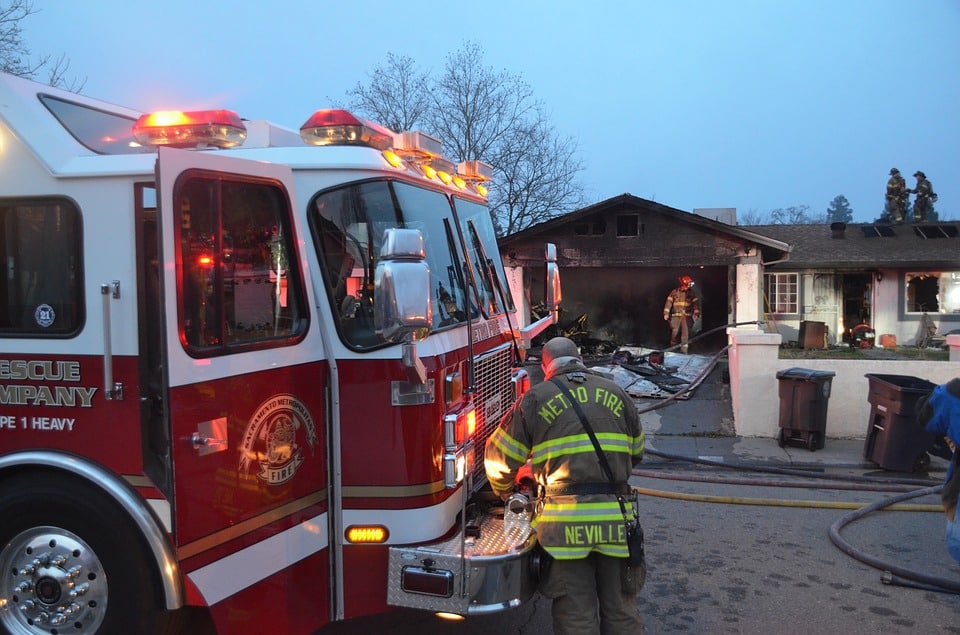A house fire has devastating and long-term effects on families. After the firefighters put out the fire, the family is left on their own to clear up whatever remains of their home. They have to make painful decisions about whether they can salvage some of their personal belongings or if they are simply too damaged to keep.
While some of these decisions can be made according to owner discretion, there are some hard and fast rules that should be observed regarding the disposal of fire-damaged belongings. Here’s a list of some items that should be thrown away immediately after a house fire.
Burned Clothing
While it is possible to clean and disinfect textiles such as clothing items and bedding after the fire, it’s not necessarily advisable. Smoke and soot contain chemicals that may irritate the skin upon contact, and those chemicals can also be inhaled once the items are worn or used. These chemicals can cause irritation and other respiratory problems. For the purpose of safety, the majority of textile items should be thrown away after a house fire, even if they are not burned or singed.
Note that textiles in a house that was engulfed by fire will smell odd no matter how many times they are washed. The strange smell comes from a variety of chemicals that are used to extinguish the fire, and it will linger for a very long time.
Cosmetics and Toiletries
Your cosmetics and toiletries contain chemicals and minerals that could be affected by the high heat of the fire, the contaminants from the extinguishing water, and the chemicals used by the firefighters as they put out the fire. Even if the cosmetics look fine, it is safer to throw them away.
After a house fire, people want to save money wherever they can because they have already lost so much. Some will be tempted to make do with whatever survives the fire, but that could be a risky proposition because high temperatures can change the composition of items such as toiletries and cosmetics without showing any visible signs. They could end up damaging hair and skin.
Medicine
The potency of your medications can be affected by the high heat, smoke, soot, and the water and chemicals that the firefighters use to extinguish the fire. The effects of the medicine could be altered because of the heat and the contamination from water and chemicals. Instead of taking the risk, safely dispose of all the medications you keep at home, and ask your doctor to write new prescriptions.
Toss all over-the-counter medications you keep in your home. Like prescription medications, they may not work as expected because of the high heat.
Food Items, Both Perishable and Non-perishable
People usually keep some element of food storage around their home, whether in cans or jars. Even though the food may appear to be unscathed by the fire, the high heat can activate bacteria inside the cans or jars. The water and chemicals used in extinguishing the fire can also contaminate the food items in the house.
To play it safe, it is a good idea to throw away all food items in the house and stock food all over again. After a devastating fire, food-borne illnesses are the last thing that the family needs. The same caution must be exercised with pet foods. They are also subject to the contamination and the possibility of bacterial activation. They should be thrown away so as not to endanger the lives of the pets.
After so much loss, it’s hard to understand why a seemingly untouched can of stewed tomatoes or a clean-looking duvet could be harmful to your family, but fire and heat do strange things to everyday items. If you’re questioning what to throw away, err on the side of caution. Continuing to make due with fire damaged items can be risky.
When fire accidents happen, nothing would really be left behind. Even the items that were only partially burned should be thrown away because it can still affect your health due to residues that can be inhaled. In addition, there are particular items that you must get rid of and these are listed in this infographic.

![4 Things to Throw Away After a Fire [infographic] 4 Things to Throw Away After a Fire [infographic]](https://disastercompany.com/wp-content/uploads/2022/04/4-Things-to-Throw-Away-After-a-Fire.jpg)
